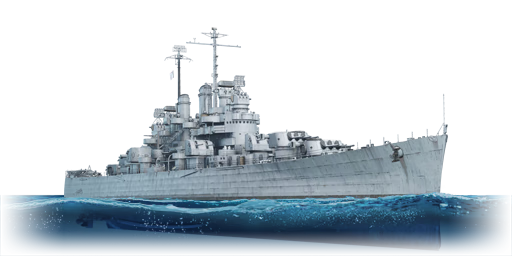Laid down in July of 1940, the USS Cleveland was a later development of the earlier Brooklyn-class light cruisers, with a slight reduction in the main battery firepower in exchange for a stronger secondary battery. Launched in 1941, Cleveland would go on to serve throughout the Second World War, notably taking part in such famous battles as Guadalcanal and the Battle of the Philippine sea. Her final act of the war would be to cover the evacuation of Allied POWs from occupied Japan, before being deactivated in 1947. She would remain in the reserves until her scrapping in 1960.
Introduced in Update "Starfighters", USS Cleveland serves as a sidegrade to the earlier Brooklyn class, with one less 6-inch triple gun mount. In exchange this allows for a bolstered secondary and anti-aircraft battery; in this case twelve 5-inch/38 dual-purpose guns and a large number of 40 mm Bofors and 20 mm Oerlikon autocannons. Additionally, the main battery also has faster vertical and horizontal slew, allowing for more easily engaging multiple targets at once, or even targeting aircraft with the main battery. Captains of the USS Cleveland can expect to be incredibly effective against destroyers and light cruisers, but have a more difficult time at long range against more heavily armoured targets.














